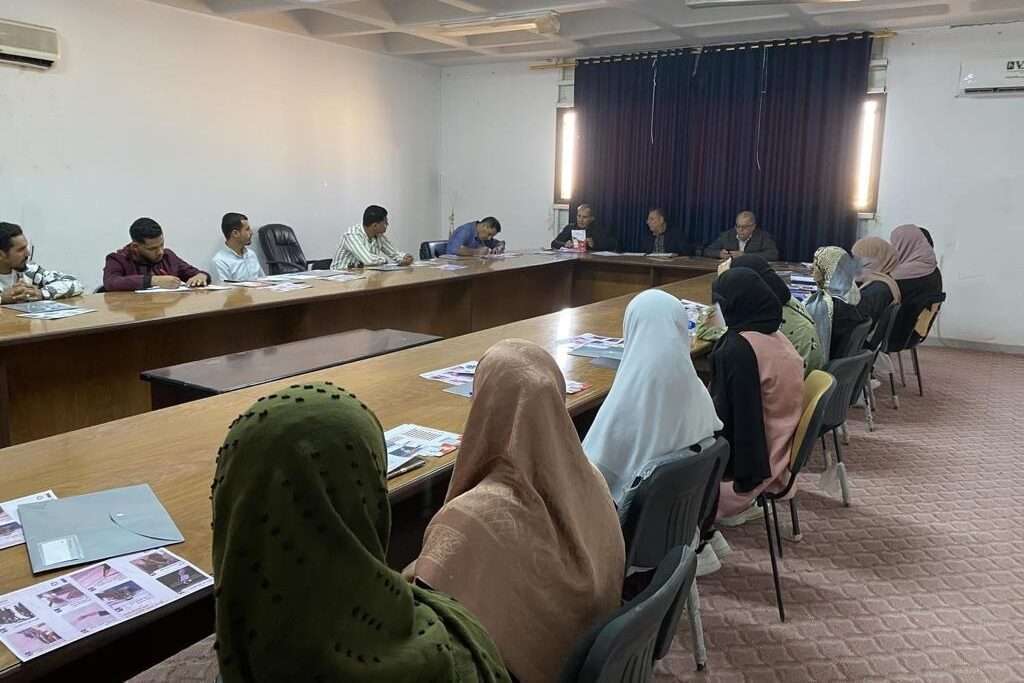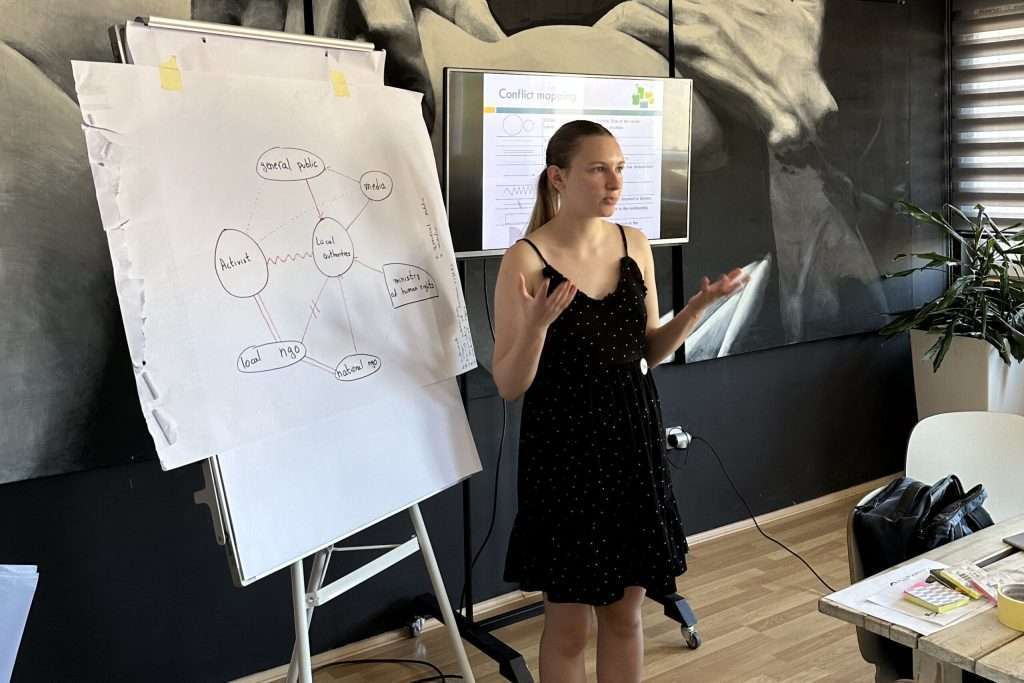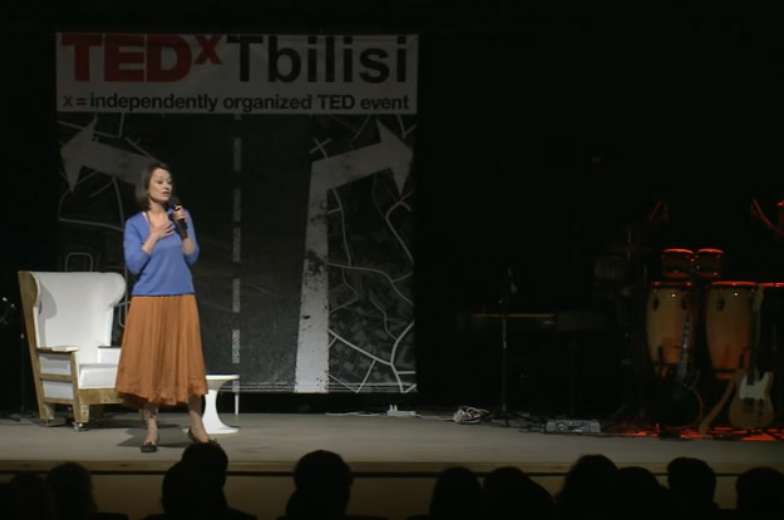Libya’s political process requires the participation of all its people, including women, youth and minorities. The active participation of women in politics has the potential to improve the daily lives of all Libyans and shape a future Libya for all its citizens. Yet, set back by years of civil war and political instability, Libya’s progress towards democracy and women’s participation in politics has been slow.
Since the Libyan revolution, women face significant barriers to participating in Libyan political life. In 2011, a law replaced the Gadhafi-era ‘Shaabiyat’ system, which were subject to the authority of appointment rather than election, with a new municipality structure. An elected council of nine representatives presides over each municipality, by law only one has to be a woman.
The current municipality quota system is a key challenge to women’s meaningful participation in Libya’s political process. This is particularly true in smaller towns where the seat reserved for women is often a tokenistic gesture to follow the law. In reality, the role of elected representative offers little opportunity for women to influence municipality activities and decision-making.
In spite of these challenges, Libyan woman are pushing back. They are demanding greater representation and opportunity to support their local communities through political inclusion and action. We are working with local Social Peace Partnerships (SPPs) across the country to increase the visibility of women in local elections and politics.
Social Peace Partnerships bring together a diverse group of local people, with a shared vision of Libya becoming a safe and inclusive country. Members include representatives from the local authority, civil society leaders, elders, community leaders, business owners and anyone who is interested in peacebuilding. PCi builds the skills and capacity of the SPP members through various trainings so they can solve community issues and develop an ongoing response mechanism to community conflict. PCi also helps to build positive relationships between the community and the local authorities.
Focus on three Social Peace Partnerships supporting women’s active participation in politics
In Nalut, a town in Western Libya, women’s political participation is historically centred around their work with civil society. Um Saad is a teacher and activist – she started a civil society organisation called ‘Twenza’ in 2017. The organisation supports women facing hardship and economic exclusion.
Taking part in an organisational development workshop delivered by the Nalut SPP, encouraged Um Saad to run for local elections. She describes her journey into local politics:
“The support and guidance I received from the SPP allowed me to propose the idea of a women’s sewing factory through Twenza, and we were able to secure 30,000 Libyan Dollars from ACTED to implement the project. This success motivated me to continue supporting women’s economic empowerment in my town, which is why in 2020 I decided to run for the woman’s seat in the Nalut municipal elections. I didn’t care whether I won or lost, what was important for me was to try. The experience motivated me to continue to help other women establish their role in our society, not just on a family level but also in a public-facing role.”
Halima Yousef is another municipal council candidate. She is from the town of Gharifa in the Ubari municipality, in southwestern Libya. She served as a social worker for women and youth affairs in the political directorate for over 20 years. Halima has been passionate about volunteering for humanitarian work since she was a child.
She joined the Ubari Social Peace Partnership in 2019 after taking part in peacebuilding training sessions. Later, she became the SPP Public Relations and Partnership Director. Halima shares her story of political engagement:
“At the SPP, I learned so much about benefitting our society and widening the focus of my work. I’ve seen how women in Libya generally and in the South specifically have emerged as leaders in response to the changes and problems we were seeing in the country. Women are continuing to excel in all fields and pushing back against a conservative society who see women’s role as limited. But I also still see the suffering that women go through to provide for themselves and their families, and for this reason I decided to nominate myself for the elections. I see that my role as a woman in politics is to support those who are most vulnerable. I aspire to work not just in my city but to reach national ministries and even to rise globally.”
In Ubari, Halima’s goal is to provide human development training in 300 schools in the region, to support women displaced by conflict. She also plans to contribute to the continuity of a radio station that she helped set up through the Social Peace Partnership.

One of the most difficult contexts within which to work on women’s political participation is in the town of Bani Walid. It is a conservative city where women’s roles are often limited to their social responsibilities within their families. The Bani Walid Social Peace Partnership did not have any women members when it started.
We worked with the SPP members and the city’s local government to build women’s participation. Acting as allies, male members of the SPP also helped advocate for women taking on leadership roles in the community. Today, of the 34 members of the SPP, 12 are women – this is a considerable achievement for Bani Walid. The inclusion of women is contributing to challenging the norms around women’s roles.
Recently, the Bani Walid SPP has taken the challenge to increase community participation in local elections. A key message of their campaign was to highlight the challenges women and youth face in participating in the political process. A representative of the Bani Walid SPP discussed the results of the project:
“The project was a huge success, with many women taking part in the dialogue sessions, especially women with political ambition. They discussed the importance of women’s meaningful participation in local politics to combat the symbolic position that women are often placed in, without any real role. As a result, four women nominated themselves in the elections, and the SPP is planning to support them to prepare their campaign plans. We will continue to make women’s role in our society more influential in the political process through our projects to support women in journalism, livelihoods training, and political participation.”
The future for Libyan women in politics
These three stories from Nalut, Ubari and Bani Walid are a few examples of the work SPPs are doing to support women’s meaningful political participation. Halima highlights that if women are to be meaningfully represented there is still much work to do: “we are still marginalized as women, and my hope is that my community will take my work more seriously and support it. Women in the South are maturing and enforcing their presence”. Um Saad shares her perspective: “women’s political participation is a form of true active citizenship, and a key part of the political transition. In the future, I expect Libyan women to be present in all forms of public life”.



